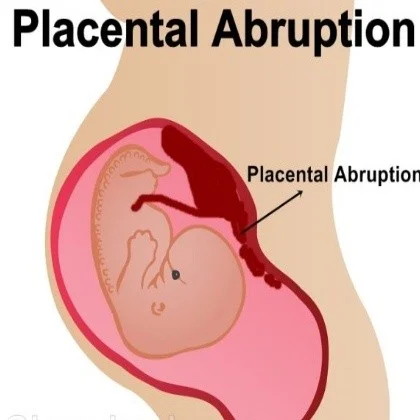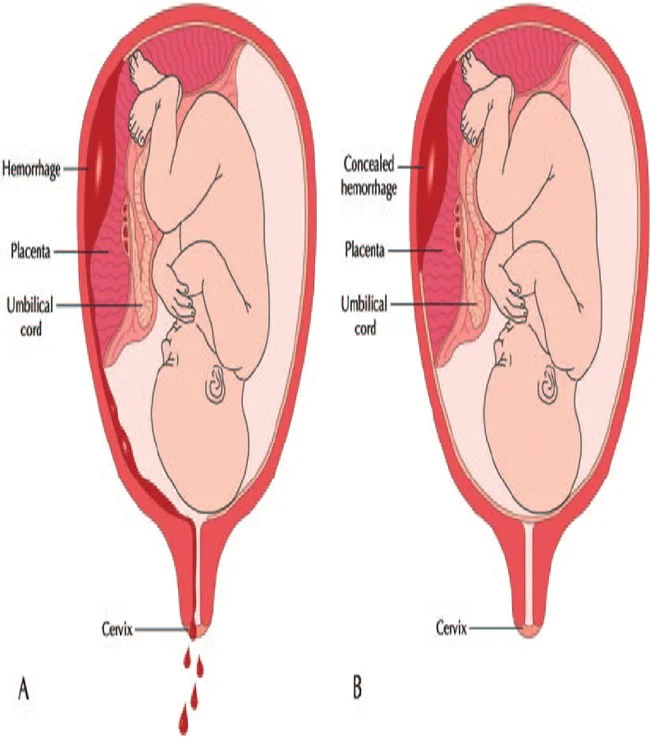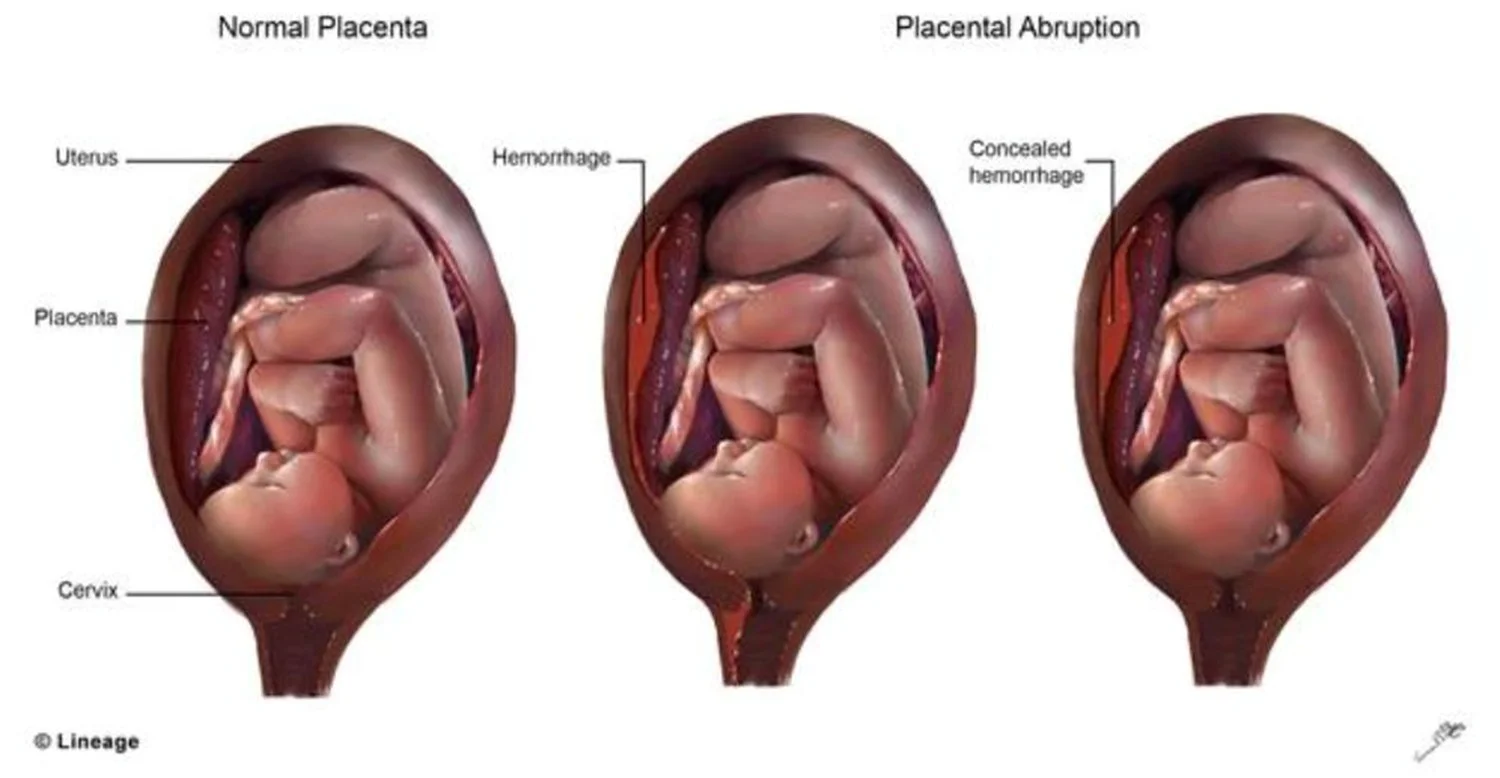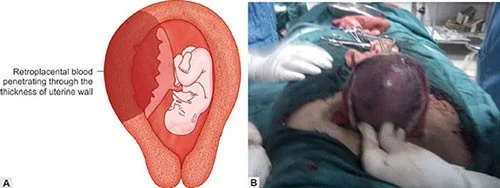Placental Abruption

Definition
Placental abruption is the premature separation of the placenta from the uterine wall.
The bleeding is maternal and/or fetal and abruption is acutely dangerous for both the mother and fetus.
Prevention
Avoidance of precipitating factors such as:
- Control of Blood Pressure
- Avoidance of Cocaine and Smoking
Risk Factors
- Hypertension (Most Common Cause) Z
- Preeclampsia/Eclampsia
- Smoking, Alcohol, and Cocaine Use
- Abdominal Trauma: e.g., Car Accidents, Falls - ER Case
- Multiple Pregnancy
- Increased Parity
- ECV
- Sudden Decrease in Intrauterine Pressure; Decompression of an Overdistended Uterus (e.g., Ruptured Membranes in Polyhydramnios)
- Previous Abruption, Chorioamnionitis, Short Umbilical Cord
- Idiopathic
Clinical Presentation
- Vaginal Bleeding
- Abdominal Pain
- Shock (Hypotension – Tachycardia)
- Absence or Reduced Fetal Movements
- Tense Abdomen
- CTG (Fetal Distress)
- P.V: Os May be Closed or Opened
Types of Placental Abruption
Revealed Blood tracks from the site of placental separation between decidua to the cervix causing vaginal bleeding.
Concealed Blood forms a retroplacental clot between the placenta and uterus with no bleeding.

Normal Placenta vs. Placental Abruption

Management
If maternal & fetal collapse:
- Resuscitation
- Delivery (if baby alive, most expedient route)
- Fully Dilated Cervix: Instrumental Delivery
- If Not Fully Dilated C/S (if baby is alive)
- If DIC, Resuscitation
- Hysterectomy
- Strict Fluids
Complications
- DIC
- Couvelaire Uterus
- Acute Renal Failure
- PPH
- Fetomaternal Hemorrhage
- Fetal Risks:
- Prematurity
- Hypoxia & ARDS
- Death
